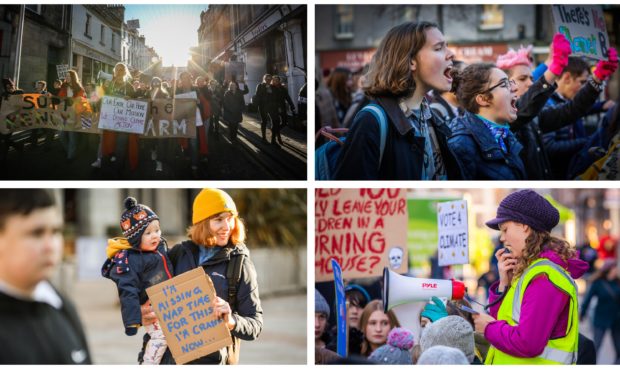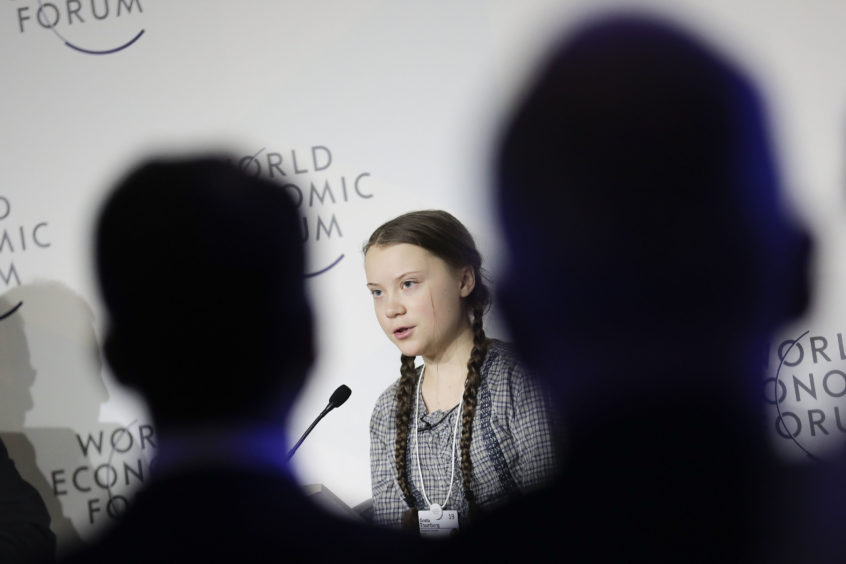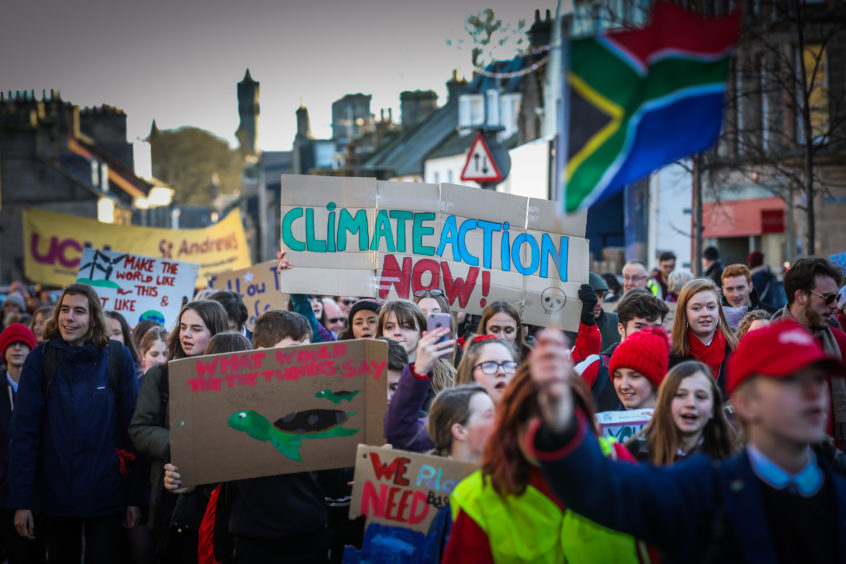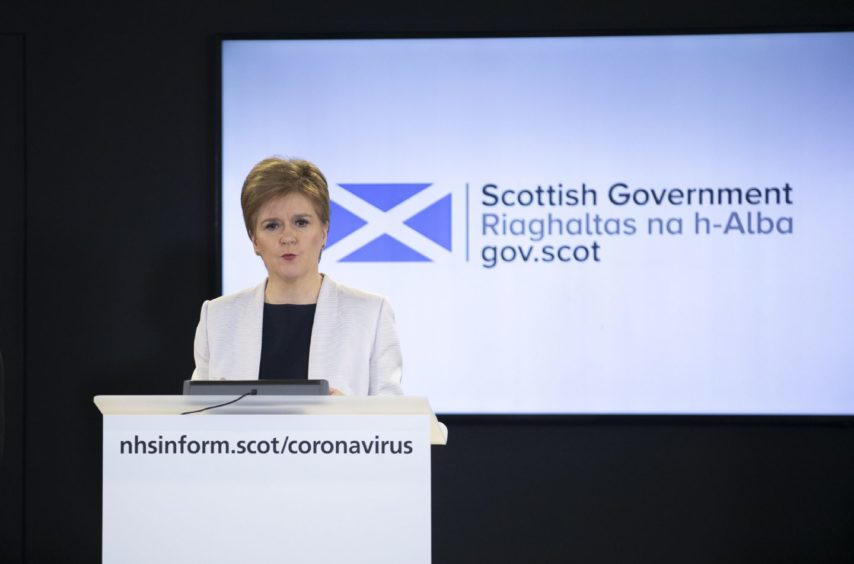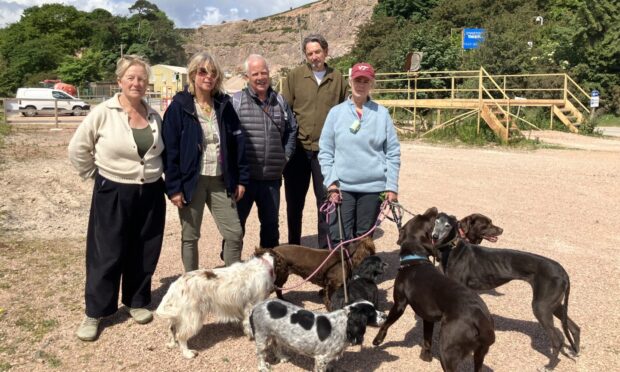A year to the day since Scotland declared a ‘climate emergency’, is the Covid-19 crisis an opportunity to rebuild a ‘greener economy’? Michael Alexander reports.
On April 28, 2019, First Minister Nicola Sturgeon warned that the world is facing a “climate emergency” and vowed Scotland “will lead by example” by cutting carbon emissions.
Ms Sturgeon said the declaration was “a public promise” to act on global warming and that she had been inspired by young protesters who went on strike from school to urge action.
Exactly a year on, and the world has certainly changed – but not in a way that anyone could ever have imagined.
The Greta Thunberg generation that led those protests are in lock down like the rest of us.
The coronavirus crisis has disrupted just about every aspect of life – including the forced postponement of the high profile UN Climate Change Conference that was due to take place in November in Glasgow.
But while the global ecosystem might well be taking an unexpected breather at the sudden drop in demand for fuel oil, it’s clear that devastating climate change forecasts and the need to plan for a potentially far greater global crisis have not gone away.
Mike Robinson, chief executive of the Perth-based Royal Scottish Geographical Society, acknowledges that coronavirus is quite rightly dominating everyone’s thoughts and immediate concerns.
However, he believes Covid-19 should act as a warning about the climate emergency and the potentially devastating impact to come.
“Scientifically, a pandemic was highly predictable, although nobody knew the timescale that it might take place,” he said.
“Scientifically, climate change is also high predictable. But we actually do have an idea of the timescale, and the action we take in the next five to 10 years will largely dictate how successfully we tackle this issue.”
Mr Robinson said the current ‘shut down’ should serve as a reminder that many of the things we take for granted are more valuable – and maybe more precarious – than we had previously recognised.
The lesson here is the importance of early action, he said. However, he is still awaiting a “tangible reaction” from government and society.
He added: “Although it feels a long way off, the disruption of coronavirus will eventually settle down. But if we simply return to ‘business as usual’ we will have done nothing to avert a potentially far more severe crisis.
“Since this disruption requires significant reinvention to get society and business up and running again, it would be a massive missed opportunity if we didn’t ensure that we rebuilt it in a more just and environmentally sustainable way.”
Lang Banks, director of WWF Scotland, said that since the Scottish Government pledged to be a leader in tackling the climate emergency, there have been positive steps in the Programme for Government and budget, which included measures to reduce emissions and accelerate the transition to a greener economy.
He said it’s “absolutely right” that the main focus of politicians right now is tackling the Covid-19 pandemic.
However, he added: “The climate and nature crises are still very much with us. When we turn our thoughts to recovery, it’s vital we build back a greener, fairer and much more resilient future, accelerating our investments in green jobs and technologies, protecting our precious environment and addressing the needs of the most vulnerable.”
It’s a sentiment shared by Mel Evans, climate campaigner for Greenpeace UK. She said declaring an emergency was a very important step, and created the momentum for a net zero target.
But the difficult bit is hitting that target and the pandemic has “unavoidably slowed the already slow progress we were making”.
She added: “Once restrictions lift, the government must give us a green recovery that supports healthier communities and bolsters us against the climate crisis.
“That means the governments in Holyrood and Westminster must act with intelligence and compassion, steering the oil industry and the communities dependent on it through a just transition to renewable energy.
“The time we’re losing right now is hugely valuable, but we have gained some useful lessons in what is possible.
“The dangers posed by small changes in the natural world can be enormous, but the capacity for governments, businesses and the general public to change and respond to an emergency is also greater than many of us thought.”
A Scottish Government spokesperson said: “Last year Scotland was one of the first countries to acknowledge the global climate emergency.
“In declaring this, the Scottish Government heightened awareness of the critical challenge facing all of us – a challenge that has not gone away during the current coronavirus crisis.
“Since then we have ramped up our climate action by placing the global climate emergency at the centre of our Programme for Government and setting some of the most ambitious emissions reduction targets in the world. These are just some of the ways we have ensured that a just transition to net-zero is at the heart of what we do.
“We remain as committed as ever to tackling the global climate emergency but must recognise that, as we continue to tackle the unprecedented health and economic challenge of Covid-19, we are operating in a different landscape.
“The Environment Secretary Roseanna Cunningham recently wrote to the Committee on Climate Change seeking advice on how our climate change plan update can – when the time is right – contribute to a ‘green recovery’.”
